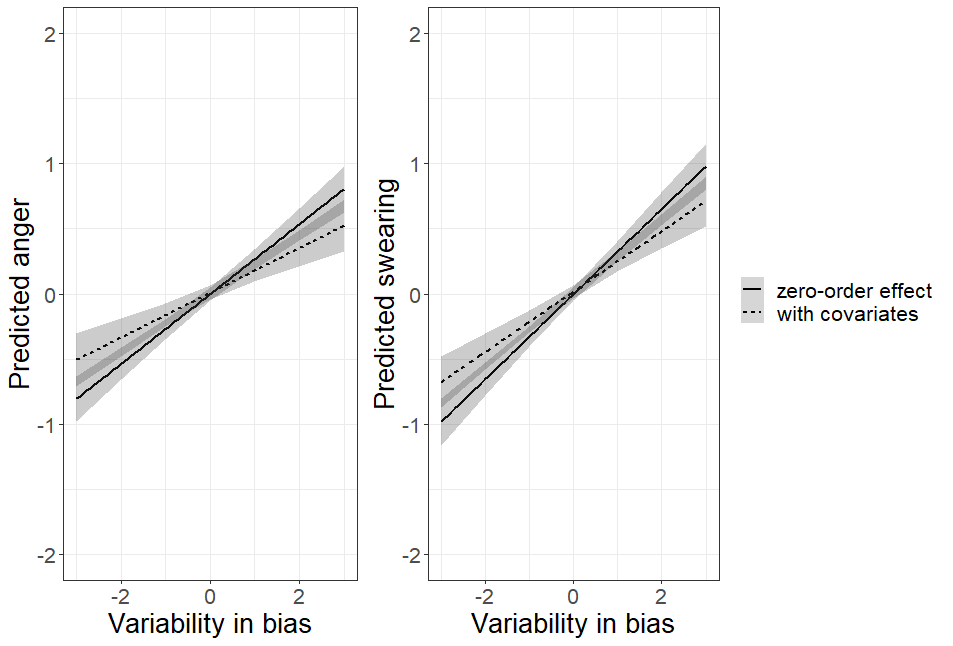Ideological divisions and regional hostility on Twitter
That the USA struggles with ideological polarization, especially regarding the issue of minority treatment, is well-known. Psychological research has shown that the average, local attitude towards people of other ethnicities predicts a host of local, well-being related phenomena such as violence and health issues among locals.
We added to this line of research by highlighting correlations between regional intergroup tension and hostile language on Twitter. Importantly, we find that averages of local attitudes neither tell the whole story, nor are they the best statistic to predict Twitter hostility. Rather, one should examine local variance in attitudes, as a higher variance in intergroup biases (or a higher kurtosis) indicate the presence of local disagreement between residents, which are, in turn, ground for hostility and conflict.

While causal connections cannot be claimed on the basis of the obtained data, I learned a lot about advanced analysis methods including spatial analyses, raking, and matching.
If you are interested in the details, please read the postprint here: Open access publication in European Journal of Personality
